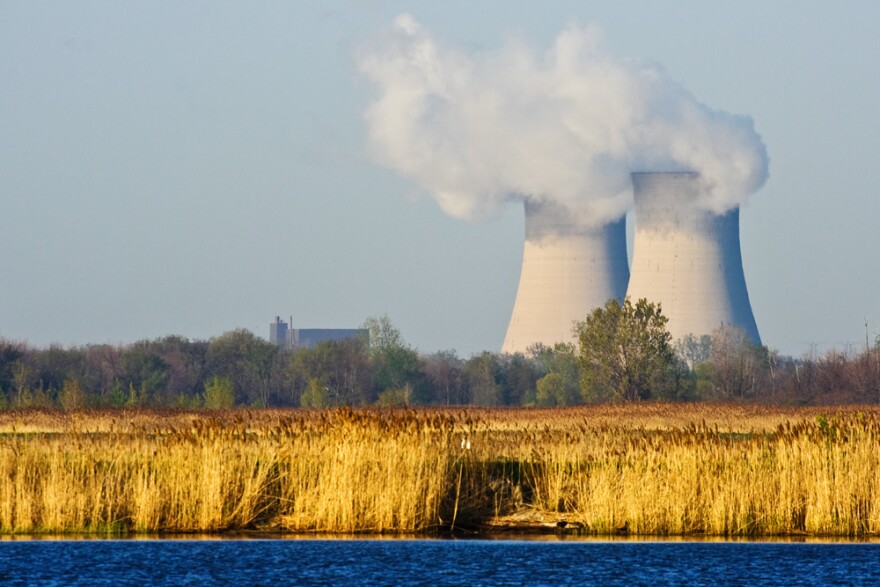Environmentalists have traditionally been very skeptical of nuclear power, but recently some climate scientists have been gaining attention because of their support for nuclear power as a tool to help reduce carbon emissions. University of Dayton professor Bob Brecha is doubtful that this is a constructive path for sustainable energy.
Preventing climate change means dramatically reducing our CO2 emissions over the next few decades. But wen we think back to the tense days and weeks following the Fukushima disaster, or Chernobyl or Three Mile Island, nuclear power raises a lot of questions for creating a long-term sustainable energy system.
Let's look at this. CO2 emissions from nuclear power are comparable to those of renewables, and much less than from coal or natural gas electricity. In spite of that, there are still some real challenges in moving toward a nuclear power future. All currently operating nuclear power plants use uranium, which is relatively plentiful, but still a finite resource. Therefore, issues of scarcity will appear at some point, although maybe not until later in this century. Until that time nuclear fuel is cheap - even a ten-fold increase in uranium prices would have little impact on the cost of electricity.
The cost of building nuclear power plants has continually increased over time, partly due to the need for complex safety measures.
Here's one important thing we need to think about. Nearly all technologies decrease in cost as we use them more and as we build more. We have seen this most dramatically with solar panels over the past decade - the more we make, the cheaper they are. Nuclear power is the exact opposite. The cost of building nuclear power plants has continually increased over time, partly due to the need for complex safety measures.
Adding nuclear power is now significantly more expensive than most alternatives, including wind power. Plants being built in Georgia need guaranteed rate-hikes to recover costs incurred in construction; if there are delays and cost overruns, and there always are, consumers have to pay. New plants to be built in England are receiving a 35-year government price guarantee to the power companies that is higher than the current cost of electricity there. Finally, there is a federal program that limits costs to the nuclear power industry in case of accidents. That's an insurance policy that we the taxpayers are paying for that no private insurer would ever take the risks on.
In the future, as solar and wind power production become more significant, we need a flexible system to make up for fluctuations in renewable energy output. Nuclear power plants are not able to react very quickly to changes in the amount of power on the grid. In other words, nuclear power is a poor choice for supplementing renewable energy in the future.
Notice that I haven't even mentioned the issue of nuclear waste disposal, which hasn't been resolved, and will therefore be left future generations. And there is no other energy source from which we constantly fear the slightest human error. Coal and other fossil fuel power sources currently kill vastly more people than nuclear power ever has - as many as ten thousand per year in the US alone, according to the American Lung Association. But the catastrophic events around Chernobyl, Three Mile Island and Fukushima have left long-term scares over large areas and dislocated hundreds of thousands of people.
Sustainability means taking care of people today and of future generations. Fundamentally, a sustainable energy system cannot be one that raises more problems than it solves, especially when there are alternatives.
Bob Brecha is a professor of the renewable and clean energy program at the University of Dayton.




